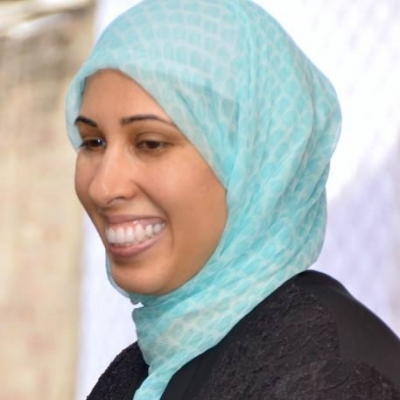



 Salina Khan
Salina KhanMuslims have become fond of building cathedral style masajid where all kinds of restrictions are imposed. Sister Salina Khan argues that masajid should become centers of activism for social, political and economic justice.
After the recent string of violence, destruction and vandalism at houses of worship across America, stepping-up security at our local masjid in Murfreesboro — that opened after two years of intense controversy, including angry protests, lawsuits and even a burnt down tractor — seems like a no-brainer.
Tensions in this medium-sized town in the “Buckle of the Bible Belt” have indeed been high as many local politicians, media outlets and even some Christian religious leaders have been stoking the flames of Islamophobia in their drive to shut out the masjid.
While some common-sense security measures are in order for the protection of worshippers, Allah (swt) — the owner of the masjid — has provided us with His own instructions on how to protect the sanctity and well-being of His house. And it is not by putting up barriers.
It is by relentlessly calling for and striving toward the establishment of the universally-accepted principles of social justice in society. The masjid is supposed to be a beacon, refuge and hope for the (growing numbers of) poor, needy and disenfranchised, thereby building bridges with the most oppressed segments of society.
Allah (swt) says in His noble Book,
“Say (O Muhammad), ‘My Lord has commanded justice; and that you set your whole selves (to Him) at every time and place of prayer…’” (7:29)
The masjid established in Madinah by Prophet Muhammad (pbuh) 1,400 years ago set the example. Shortly after erecting a simple congregational prayer room and adjacent living area for himself and his family, the Prophet (pbuh) ordered the construction of a platform (suffah in Arabic) for the local homeless. The Prophet (pbuh), who used to sit, converse and share the best of his food with these refuge-takers, asked those keeping aloof from them, “Do you fear that the poverty of the poor will be transferred to you?” And he did not stop there.
While some common-sense security measures are in order for the protection of worshippers, Allah (swt) — the owner of the masjid — has provided us with His own instructions on how to protect the sanctity and well-being of His house. And it is not by putting up barriers.
Prophet Muhammad (pbuh) challenged the status quo and strove to change the conditions perpetuating oppression in society. Our masjid must do likewise by raising our objections to all forms of oppression and coming up with creative alternatives to the capitalistic, imperialistic systems wreaking havoc around the world today. Prophet Muhammad (pbuh) said, “A moment of justice is better than seventy years of worship in which you keep fasts and pass the nights in offering prayers and worship to God.”
With the US economy, morality and healthcare in freefall, our society is in desperate need of such solutions, and it is the duty of every masjid to provide them. One frustrated rural town in Mississippi, for example, is already adopting an Iranian model of preventive healthcare to better serve its poor.
Indeed, it takes strong conviction, moral courage and perseverance to stand up to oppression, especially in an atmosphere like ours charged with hate, racism and xenophobia. That is why most US masjid leaders (90% by some estimates) forego this God-given responsibility to the detriment of themselves and their communities.
“These masjid have become burial grounds for today's Muslims,” says Imam Muhammad al-Asi, elected Imam of the Islamic Center in Washington. “They go there to bury their heads, conceal their thoughts and cover their minds.” Imam Ali, the husband of Fatima, one of the four perfect women of all times, tried to reinforce the social fabric of the masjids during his tenure as leader of the Muslims but faced immense resistance from the old-guard creeping back into power. Imam Ali was eventually assassinated while praying in the masjid but he did not give up on this goal even then.
While lying bloodied by a poisoned sword, Ali saw that the rope tying the hands of his captured assassin was tight and cutting into his flesh. He immediately ordered the people to loosen it and treat the murderer more humanely, following God’s instructions to
“…Let not a people’s enmity incite you to act otherwise than with justice…” (5:8).
We must live up to the same standard ordained by Allah (swt) in His noble Book.
Sister Salina Khan runs the blog: theperfectionistas.blogspot.com
